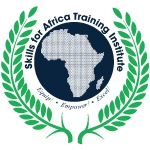|
|
Quality Improvement and Patient Safety Training: Driving Excellence in Healthcare
USD 1,500 |
Venue: Mombasa
Other Dates
| Venue | Date | Fee | |
|---|---|---|---|
| Nairobi, Kenya | 21 - 25 Apr, 2025 | USD1500 | |
| Nairobi, Kenya | 05 - 09 May, 2025 | USD1500 | |
| Dubai, United Arab Emirates | 12 - 16 May, 2025 | USD4500 | |
| Nairobi, Kenya | 19 - 23 May, 2025 | USD1500 | |
| Nairobi, Kenya | 02 - 06 Jun, 2025 | USD1500 | |
| Mombasa, Kenya | 09 - 13 Jun, 2025 | USD1750 | |
| Nairobi, Kenya | 16 - 20 Jun, 2025 | USD1500 | |
| Nairobi, Kenya | 07 - 11 Jul, 2025 | USD1500 | |
| Johannesburg, South Africa | 14 - 18 Jul, 2025 | USD3500 |
In today's healthcare environment, delivering high-quality, safe, and patient-centered care is paramount. Healthcare organizations are under increasing pressure to improve clinical outcomes, reduce medical errors, enhance patient experience, and optimize operational efficiency. This comprehensive Quality Improvement and Patient Safety training course equips healthcare professionals with the knowledge and skills to implement effective quality improvement initiatives and foster a culture of safety. Participants will learn about quality improvement methodologies, patient safety principles, data analysis techniques, and change management strategies within the unique context of the healthcare industry. This course prepares individuals to lead quality improvement projects, promote patient safety, and drive a culture of continuous improvement in their healthcare settings.
Target Audience:
This course is designed for a wide range of professionals in the healthcare sector who are involved in or aspire to be involved in quality improvement and patient safety initiatives, including:
- Clinicians: Physicians, nurses, pharmacists, and other healthcare providers who are committed to improving patient care and safety.
- Healthcare Administrators and Managers: Hospital administrators, clinic managers, department heads, and other personnel responsible for overseeing healthcare operations.
- Quality Improvement Professionals: Individuals specifically tasked with leading and implementing quality improvement projects.
- Risk Managers: Professionals responsible for identifying and mitigating risks to patient safety.
- Anyone seeking to improve quality and safety in healthcare: Professionals from various backgrounds who are passionate about enhancing healthcare delivery.
Course Objectives:
Upon completion of this Quality Improvement and Patient Safety training course, participants will be able to:
- Understand and apply quality improvement methodologies such as Lean, Six Sigma, and PDSA to enhance healthcare processes and outcomes.
- Implement patient safety principles and practices to minimize medical errors and adverse events.
- Analyze healthcare data to identify areas for improvement and track the effectiveness of quality improvement initiatives.
- Lead and manage quality improvement projects effectively, from planning to implementation and evaluation.
- Foster a culture of safety within healthcare organizations, encouraging open communication and reporting of safety concerns.
- Improve patient experience by implementing patient-centered care principles and addressing patient feedback.
- Reduce healthcare costs by eliminating waste, improving efficiency, and preventing medical errors.
- Meet regulatory requirements related to quality and patient safety.
- Contribute to a culture of continuous improvement in their healthcare settings.
- Advance their careers in the field of quality improvement and patient safety.
Duration: 5 Days
Course Content
This comprehensive course equips healthcare professionals with the knowledge and skills to implement effective quality improvement initiatives and foster a culture of safety, ultimately driving excellence in healthcare delivery.
Module 1: Introduction to Quality Improvement and Patient Safety
- Defining quality improvement and patient safety in healthcare.
- The importance of quality and safety in contemporary healthcare.
- Historical context and evolution of quality improvement in healthcare.
- Ethical considerations in quality improvement and patient safety.
- The role of leadership in driving quality and safety.
Module 2: Quality Improvement Methodologies
- Lean methodology: principles, tools, and techniques for eliminating waste.
- Six Sigma methodology: DMAIC cycle, statistical tools for reducing variation.
- Plan-Do-Study-Act (PDSA) cycle: iterative approach to testing and implementing changes.
- Other quality improvement models: IHI's Triple Aim, Baldrige Criteria.
- Choosing the right methodology for different healthcare challenges.
Module 3: Patient Safety Principles and Practices
- Understanding medical errors and adverse events.
- Human factors and their impact on patient safety.
- Error prevention strategies: checklists, protocols, standardization.
- Root cause analysis (RCA) and failure mode and effects analysis (FMEA).
- Creating a culture of safety: just culture, reporting systems.
Module 4: Data Analysis for Quality Improvement
- Basic statistical concepts for healthcare data analysis.
- Data collection methods and tools.
- Data visualization and interpretation.
- Using data to identify trends and patterns.
- Statistical process control (SPC) for monitoring performance.
Module 5: Leading Quality Improvement Projects
- Project management principles for quality improvement initiatives.
- Defining project scope, goals, and objectives.
- Developing project timelines and managing resources.
- Leading and motivating project teams.
- Communicating project progress and results.
Module 6: Measuring and Monitoring Quality and Safety
- Developing quality and safety metrics.
- Data collection and reporting systems.
- Performance measurement and benchmarking.
- Using dashboards and scorecards to track progress.
- Public reporting and transparency.
Module 7: Improving Patient Experience
- Understanding patient expectations and needs.
- Patient-centered care principles and practices.
- Measuring patient satisfaction and feedback.
- Implementing strategies to improve patient experience.
- The role of communication in patient experience.
Module 8: Reducing Healthcare Costs through Quality Improvement
- The relationship between quality and cost in healthcare.
- Identifying and eliminating waste in healthcare processes.
- Improving efficiency and productivity.
- Reducing medical errors and adverse events.
- Value-based care and its impact on cost.
Module 9: Building a Culture of Safety
- Creating a just culture and promoting open communication.
- Encouraging reporting of safety concerns and near misses.
- Empowering staff to identify and address safety issues.
- Leadership's role in fostering a safety culture.
- Teamwork and collaboration for patient safety.
Module 10: The Future of Quality Improvement and Patient Safety
- Emerging trends in quality and safety: digital health, artificial intelligence.
- The role of technology in improving quality and safety.
- Patient engagement and empowerment.
- The future of healthcare quality measurement and reporting.
- Continuous learning and professional development in quality and safety.
Training Approach
This course will be delivered by our skilled trainers who have vast knowledge and experience as expert professionals in the fields. The course is taught in English and through a mix of theory, practical activities, group discussion and case studies. Course manuals and additional training materials will be provided to the participants upon completion of the training.
Tailor-Made Course
This course can also be tailor-made to meet organization requirement.
Training Venue
The training will be held at our Skills for Africa Training Institute Training Centre. We also offer training for a group at requested location all over the world. The course fee covers the course tuition, training materials, two break refreshments, and buffet lunch.
Visa application, travel expenses, airport transfers, dinners, accommodation, insurance, and other personal expenses are catered by the participant
Certification
Participants will be issued with Skills for Africa Training Institute certificate upon completion of this course.
Airport Pickup and Accommodation
Airport pickup and accommodation is arranged upon request.
Terms of Payment: Unless otherwise agreed between the two parties’ payment of the course fee should be done 5 working days before commencement of the training.
Course Booking
Please use the “book now” or “inquire” buttons on this page to either book your space or make further enquiries.
| Mombasa | Apr 14 - 18 Apr, 2025 |
| Nairobi, Kenya | 21 - 25 Apr, 2025 |
| Nairobi, Kenya | 05 - 09 May, 2025 |
| Dubai, United Arab Emirates | 12 - 16 May, 2025 |
| Nairobi, Kenya | 19 - 23 May, 2025 |
| Nairobi, Kenya | 02 - 06 Jun, 2025 |
| Mombasa, Kenya | 09 - 13 Jun, 2025 |
| Nairobi, Kenya | 16 - 20 Jun, 2025 |
| Nairobi, Kenya | 07 - 11 Jul, 2025 |
| Johannesburg, South Africa | 14 - 18 Jul, 2025 |
| USD 1,500.00 | |
Nixon Kahuria +254 702 249449
Tags: |
Precision Medicine Personalized Healthcare Genomics Targeted Therapies Patient-Centred Care Biomarker Discovery Healthcare Innovation |
Related Courses
 Communication and Presentation Skills for Financial Professionals: Delivering Impactful Financial Insights
Communication and Presentation Skills for Financial Professionals: Delivering Impactful Financial Insights
5 days, 14 - 18 Apr, 2025
Skills for Africa Training Institute
 Econometric Modeling of Time Series: Forecasting and Analyzing Dynamic Data Training Course
Econometric Modeling of Time Series: Forecasting and Analyzing Dynamic Data Training Course
12 days, 14 - 25 Apr, 2025
Skills for Africa Training Institute
 Ai-powered Surveillance and Predictive Policing: Data-driven Security
Ai-powered Surveillance and Predictive Policing: Data-driven Security
12 days, 14 - 25 Apr, 2025
Skills for Africa Training Institute
 Advanced Smart Grid Technologies and Applications: Modernize Power Infrastructure
Advanced Smart Grid Technologies and Applications: Modernize Power Infrastructure
12 days, 14 - 25 Apr, 2025
Skills for Africa Training Institute
Currency Converter



